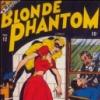
One of the heathen mailing lists I mostly-lurk on is going through the old folkish-universalist debate again. Made me think of something I've always wondered, but am not about to ask on list because it could only be perceived as argumentative, and that's really not how I mean it.
I'm not folkish, but I think I have a reasonable grasp of what it means--the idea of the folk soul, the concept of the religion as a folkway (in fact, some folkish Asatruar quite resent the use of the word "religion" because to them it implies that the faith is separable from the rest of one's identity), the relationship to the gods as "elder kin." It may not be my own point of view nor one I find particularly persuasive, but I think it's a legitimate one and often a well-reasoned one.
My question is this: okay, like most reconstructionists, heathens look back to the past for inspiration. If one wants to honor the gods of the ancient Germanic people, that's where one draws that inspiration from. That makes good sense in terms of developing practices and theology. But the idea of a folk soul, that's deeper--why would that only date from that point? Why aren't one's ancestors beyond that point considered part of this? Why stop there--why not go further back? It can't be because of a lack of information, that may make it more convenient but certainly not more meaningful. (It's kind of like saying that your greatX10-grandpa is part of your family, but your greatX30-grandpa is not. Okay, you might say, but greatX10-grandpa shares more of your DNA--well, that's true, but greatX2-grandpa shares even more and he was Lutheran! :))
Most heathens seem to feel that Anglo-Saxon, Scandinavian and continental Germanic people worshipped pretty much the same gods under slightly-different names (not everyone thinks this, but enough do that an Odin-worshipper can mix with a Woden-worshipper without too much trouble). So that one can consider Thor and Thunor to be, for all intents and purposes, the same being. But not Perkunos. And not Taranis. And certainly not Zeus.
Okay, now I'm a hard polytheist and I definitely don't think that Perkunos and Taranis and Zeus and Thor are the same being. I'm not even sure about Thor and Thunor, quite frankly :). My point is that those who honor Thor and those who honor Thunor are considered to be part of the same Folkway, while those who honor Perkunos or Taranis are not. But, at some point, they were the same people. What changed with the coming of ancient heathenry to make that point the cut-off, the place after which we are all one people, and before which we are not? Is it in the lore somewhere? Is it just the passing of time? The development of a particular set of relatively stable deities (and any further changes that might have occurred stopped when Christianity took over)? It has to be something that makes sense in terms of tying the group together, beyond the existence of the gods.
I hope I'm making the sense I mean to make--I had gone to bed and was lying there thinking about this, and figured I had better write it down before it escaped. Back to bed now! :)